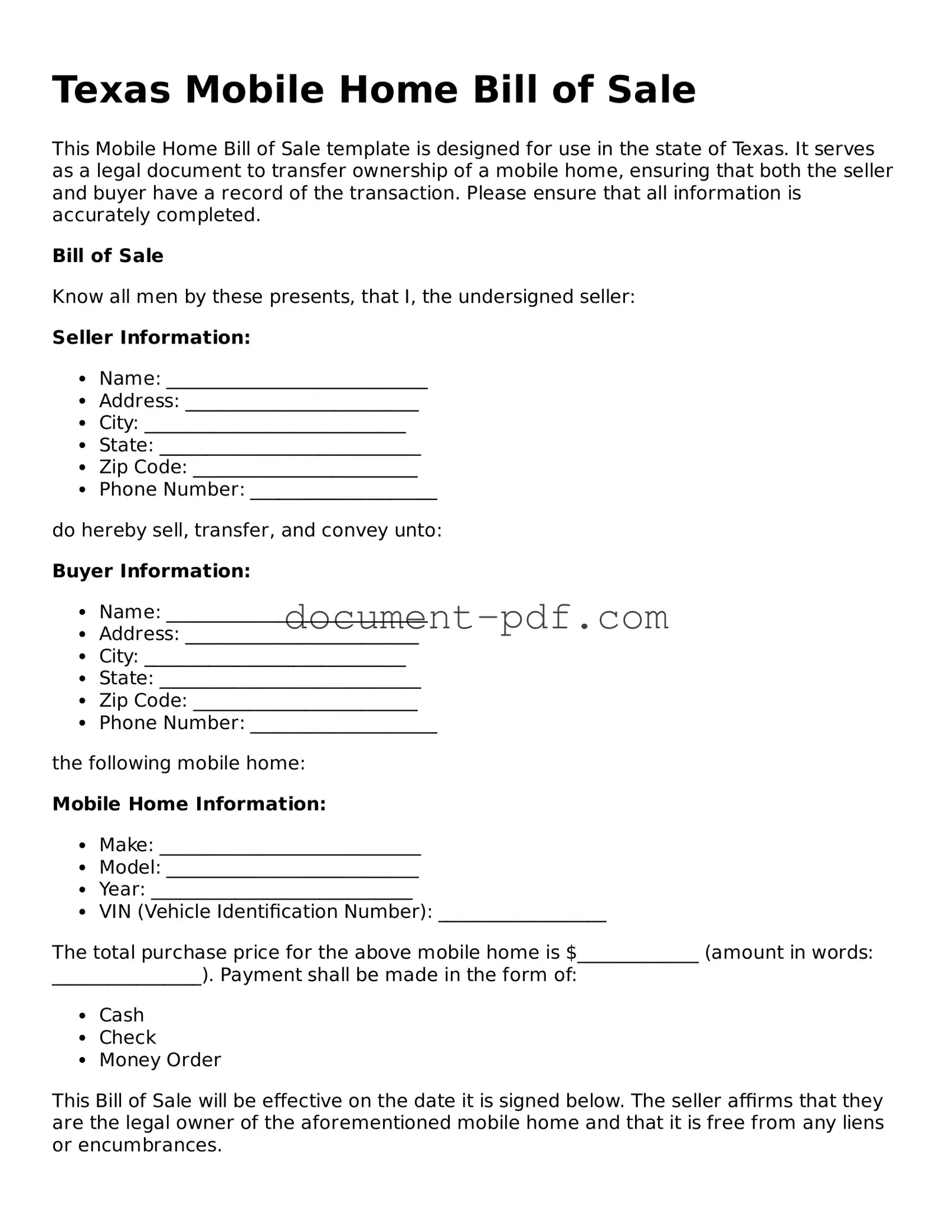Attorney-Verified Texas Mobile Home Bill of Sale Template
The Texas Mobile Home Bill of Sale is a crucial document that facilitates the transfer of ownership for mobile homes in Texas. This form provides essential details about the transaction, ensuring both the buyer and seller have a clear understanding of their rights and responsibilities. For a smooth transaction, consider filling out the form by clicking the button below.
Access Mobile Home Bill of Sale Editor Here

Attorney-Verified Texas Mobile Home Bill of Sale Template
Access Mobile Home Bill of Sale Editor Here
Finish the form without slowing down
Edit your Mobile Home Bill of Sale online and download the finished file.
Access Mobile Home Bill of Sale Editor Here
or
Click for PDF Form
